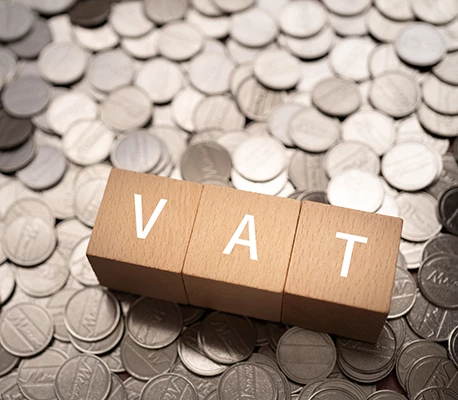If you’re based in the UK and doing business overseas, the VAT rules can be a little complicated. In this article we’ll look at what a UK VAT registered business needs to know about overseas transactions.
VAT is generally charged based on the place of supply, this depends on whether the transaction is business to business (B2B) or business to customer (B2C).
Supplying a service to an overseas customer
Overseas business customer – If you are providing services to another registered business within the EU, the place of supply is deemed to be overseas and therefore the VAT is outside the scope of UK VAT and does not get charged on the invoice.
If you provide services to a company outside of the EU, then you do not charge VAT on your invoices as it is deemed “outside the scope” of VAT and no further action is required.
Overseas non-business customer – If you’re providing services to a private individual rather than a business, the place of supply would be deemed as the UK and therefore output VAT should be accounted for at the standard rate and charged to the customer.
Receiving a service from an overseas business
As you are a UK registered business and you are the customer in this case, the place of supply is the UK. This means you would need to apply the reverse charge on your VAT return.
How does the VAT reverse charge work? When the Reverse Charge is applied, the recipient of the goods or services makes the declaration of both their purchase (input VAT) and the supplier’s sale (output VAT) in their VAT return.
In this way, the two entries cancel each other from a cash payment perspective in the same return.
From the authorities’ point of view, they can see the transaction reported in the special boxes provided in the returns for cross border supplies of goods or services. |
Invoicing overseas
You can invoice in the currency agreed between you and your customer but the tax due must be shown in the local currency. For example, if UK VAT applies, the total VAT must be shown in pounds sterling.
Invoicing in sterling is better for the UK company as there’s no exchange rate risk because your customer will be paying in your local currency.
If you’re invoicing in another currency but being paid in pounds, your bank will charge for changing that money into sterling, check your bank charges before entering an agreement with your customer.
Deregistering
It should be noted that if you cease to make vatable supplies for the foreseeable future, you should deregister your UK Limited Company from VAT and notify HMRC within 30 days.
